Safi Bahcall, in an interview, talks about how Garry Kasparov’s success could be attributed to his post-game analysis technique. After a game, rather than looking at a bad move and trying to correct it, he would analyze how he arrived at that decision and what could be improved with his decision making process. This requires a shift from having an outcome mindset to a system mindset.
Instead of analyzing the outcome, going one step above and looking at the meta-level, which is the decision making process. The advantage with this approach is that once you adjust your process, it applies to other situations as well, not just one particular case that failed before.

The Happiness Project describes Gretchen Rubin’s one year journey of resolutions that she kept each month to make herself happier. It’s a very personal memoir documenting her journey, mixed with research findings about happiness. Here are some parts that I resonated with me:
- Chicken & egg nature of happiness
- Happy people find it easier to get and stay married than unhappy people do, because happy people make better dates and easier spouses. But marriage itself also brings happiness, because it provides the support and companionship that everyone needs.
- Being happy energizes you, and at the same time, having more energy makes it easier for you to engage in activities - like socializing and exercise - that boost happiness.
- Happy outperform the less happy. They work more hours each week, they tend to be more cooperative, less self-centered and more willing to help other people. They work better with others, because people prefer to be around happier people.
- One of the best ways to make yourself happy is to make other people happy. One of the best ways to make other people happy is to be happy yourself.
- Marriage
- Happiness has a particularly strong influence in marriage because spouses pick up each other’s moods so easily.
- we hugged for at least six seconds, which, I happened to know from my research, is the minimum time necessary to promote the flow of oxytocin and serotonin
- in marriage, it’s less important to have many pleasant experiences than it is to have fewer unpleasant experiences, because people have a “negativity bias”. It takes at least five good acts to repair the damage of one destructive act.
- marital satisfaction drops substantially after the first child arrives.
- Friendship
- Having strong social bonds is the most meaningful contributor to happiness.
- Help people think big, words of enthusiasm and confidence from a friend goes a long way
- You tend to like people who you think like you
- It’s easier to befriend someone who is already a friend of a friend.
- Show a vulnerable side and laugh at yourself
- People are more apt to feel close to a family member who often expresses affection than to one who rarely does
- Work
- Enthusiasm is more important to mastery than innate ability, it turns out, because the single most important element in developing an expertise is your willingness to practice.
Overall, it was a quick and interesting read about happiness.
Rule 1 in Jordan Peterson’s “12 Rules for Life” is to stand up straight with your shoulders back in life, both literally and figuratively. He first explains how birds and lobsters establish a dominance hierarchy among themselves over shared resources:
“The wiliest, strongest, healthiest and most fortunate birds occupy prime territory, and defend it. Because of this, they are more likely to attract high-quality mates, and to hatch chicks who survive and thrive. Protection from wind, rain and predators, as well as easy access to superior food, makes for a much less stressed existence. The poor and stressed always die first, and in greater numbers."
Sampling is a powerful tool for discovering what you like. New York has an abundance of gyms, so I got trial memberships from a few of them and was surprised by how many new things I discovered about myself.
I went to a hot yoga class at Equinox, just because I wanted to try a class, and I had done yoga a few times before. I found out that I really enjoyed the hot aspect of the practice, and started searching for other studios that offer hot yoga.
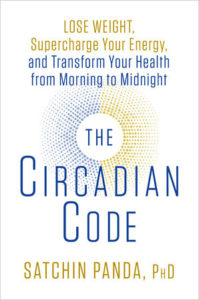
The Circadian Code talks about how the our body’s circadian clock affects our health. One big argument in the book was in favor of restricted time eating, or in order words, intermittent fasting. Here are some of my takeaways:
- You can start with eating within a 12 hour window for 2 weeks, and then reduce it by 1 hour each week, with the goal of eventually restricting all of your eating within an 8 hour window.
- He suggests having a protein & fiber heavy breakfast. Oatmeal, cottage cheese, almonds and dried cranberries
- Don’t eat carbs at dinner
- Your brain works best between 10 AM - 3 PM
- Light elevates mood. You need to be exposed to a light source that is at least 10,000 lux for 15-30 minutes every day
- Best time to take melatonin is 2 hours before bedtime. Wait 1-2 hours after eating before you take melatonin
I find it amusing that I’ve been applying some principles from computer science and my job to my everyday life. Here are some principles that I’ve been using to optimize my everyday workflows recently:
Redundancy:
- I try to store an extra for everything (toilet paper, toothpaste, laundry detergent etc.) so that I don’t run out completely and have enough time to restock as items run out.
Batching:
- I was visiting the local library several times a week, to drop off or pick up books. I’ve been batching these visits together: when a book arrives, waiting if there are other books in transit, or not dropping off a book immediately if there’s still time left or renewal is possible.
- I was constantly restocking my fridge during the week. Now, I try to plan what I’ll cook, buy most of my groceries online, and only go out once a week for markets that don’t have delivery. For instance, I go to a Turkish market that is far away once a month, and buy items in bulk.
Staging area:
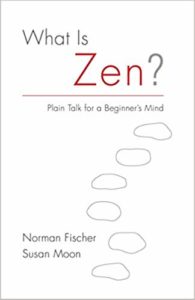
When I came back from my solo trip to Japan, I had a growing interest in Zen Buddhism. One of the books I picked up was Zen Mind, Beginner’s Mind. I found it difficult to follow as an introductory book. “What is Zen?” gives a more direct introduction to Zen Buddhism in question and answer format. Some of the thought-provoking parts for me were:
Most Western people who come to Buddhism are looking for something. That’s good. Yet looking for something stands in the way of getting what you are looking for…And what you get may not be exactly what you thought you were looking for in the beginning…_ _When you desperately press for some goal or aspiration, your very pressing becomes an obstacle. You are tense, you try too hard, you are impatient, you get discouraged easily, and this hampers you.
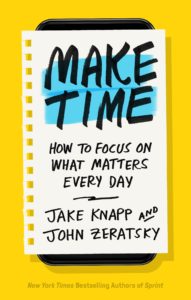
Make Time is a book on productivity, it talks about how to make effective use of your time. It suggest a method that involves picking a highlight for the day, one high-priority goal. There can be different frameworks on how too choose, for instance:
- What’s the most pressing thing I have to do today?
- At the end of the day, which one will bring me the most satisfaction?
- When I reflect on today, what will bring me the most joy?
There’s a lot of emphasis on being able to focus:
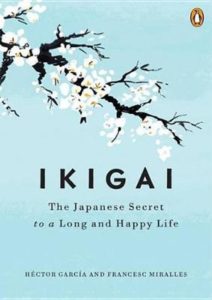
Ikigai talks about world’s blue zones, where people live longer and have fewer diseases than anywhere else in the world. Places like Okinawa, Japan or Sardinia, Italy. Scientists interview centurians that live in these regions and try to find insights about longevity. Some of the recommendations are:
- Fill your belly to 80%, stop eating before you’re full
- Eat a wide variey of vegatables every day
- Grains are the foundation of their diet, they rarely eat sugar.
- Drink green tea, rich in antioxidants
- Stay active, do lightweight exercise
Overall, the book isn’t very coherent, and talks about many different subjects and doesn’t have a single hypothesis.
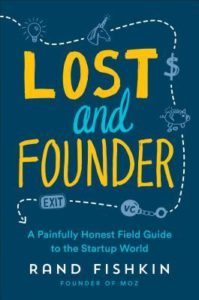
In Lost and Founder, Rand Fishkin, the founder of search engine optimization company Moz, shares his experience on starting a consulting business and turning it into a product company.
It’s very common to start a services business, and he shows some counter-intituive scenarios on how a consulting business could be a better financial deal as a founder. It was also eye opening to see the sort of multipliers VC firms expect during a sale, and how incentives can be misaligned between founders and VCs.






